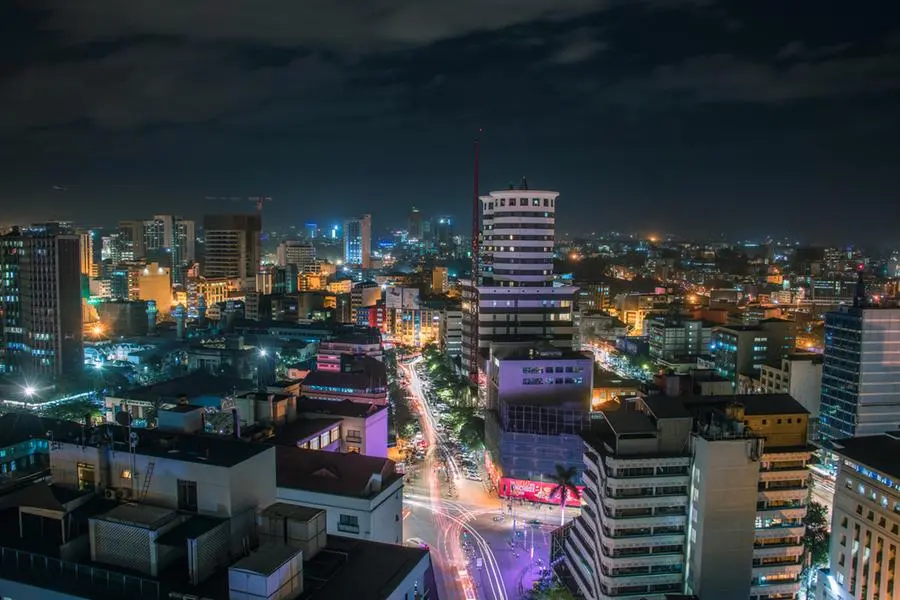PHOTO
Kenya says it intends to thrash out finer details with China financing infrastructure projects before end of June, signalling pursuit of a project seen as crucial for improving trade and transportation.
Prime Cabinet Secretary and Foreign and Diaspora Affairs Cabinet Secretary Musalia Mudavadi said he had directly appealed to Chinese counterparts to speed up the deals meant to extend the Standard Gauge Railway and widen the main highway to Malaba.
Mr Mudavadi is in China and, on Tuesday, met with Chinese counterpart Wang Yi, on the sidelines of the Ministerial Meeting of Coordinators on the Implementation of the Follow-up Actions of the Forum on China-Africa Cooperation, the main cooperation platform between China and African countries.
But Mudavadi had travelled to Changsha in southern China with a view to finalising financing agreements on which both countries had agreed in principle back in April, when President William Ruto toured Beijing on a state visit.
At the meeting with Wang, Kenya’s top diplomat said it is “fundamentally important” that the deals on financial cooperation be thrashed out before end of June, potentially targeting the new financial year as the start timelines for implementing the projects.“On Economic Partnership Cooperation Framework, Kenya is consulting internally and should be ready before end June. Therefore, it is important for the technical teams to meet and begin preparations for bilateral negotiations which will ultimately to more access to the Chinese market for Kenyan goods and services.”After the state visit, President Ruto agreed with the Chinese, in principle, to construct the standard gauge railway from Naivasha on to Kisumu and Malaba. But there financing details were to be agreed.
Initially, the proposal was a shared costing with Kenya footing some 30 percent, the Chinese to take another 30 while a private consortium to take up the balance in an overall arrangement that involved the public-private partnership (PPP). Kenya has since proposed that its share of the burden be lessened with an uptake of more Chinese funding.
Overall, however, Kenya and China had signed up to 15 Memorandums of understanding (MOU), most of them tied to improving trade and infrastructure.
They included the Framework Agreement on Economic Partnership for shared Development which constitutes collaboration on sustainable development of the manufacturing industry, agricultural transformation and improving Kenya’s competitiveness in the global market. The agreement is to guide the facilitation of trade, inclusive growth, coordination of supply chain and the digital economy.
They also signed a MOU on cooperation in the Railway sector where there is to be a review of the Railway sector laws, regulations and Policies as well as the development of Railway technical and operation standards.
The MOU could guide the planning and subsequent advancement and development of railway infrastructure to cover locomotives, rolling stock and railway operational management as part of the multimodal transport.
A dispatch from the Chinese Foreign Ministry was not specific on the deals but indicated that Wang had affirmed China’s willingness “to work with Kenya in implementing the consensus reached by the two Presidents and strengthen bilateral relations.”This trip, however, was Mudavadi’s clear-the-air opportunity. In the wake of the state visit, Americans legislators had criticised Kenya for turning its back on Washington, after Ruto criticised the US unilateral trade tariffs while on Chinese soil.
Mudavadi had travelled to Washington soon after that State Visit in what he said was to elaborate on Kenya’s pursuit of all alliances with those who boost its interests.
In Changsha, Mudavadi said Kenya was “very happy” with the outcomes of the state visit, especially the elevation of comprehensive strategic partnership to ‘all-weather Kenya-China Community with a Shared Future for the New Era.’
© Copyright 2022 Nation Media Group. All Rights Reserved. Provided by SyndiGate Media Inc. (Syndigate.info).




















